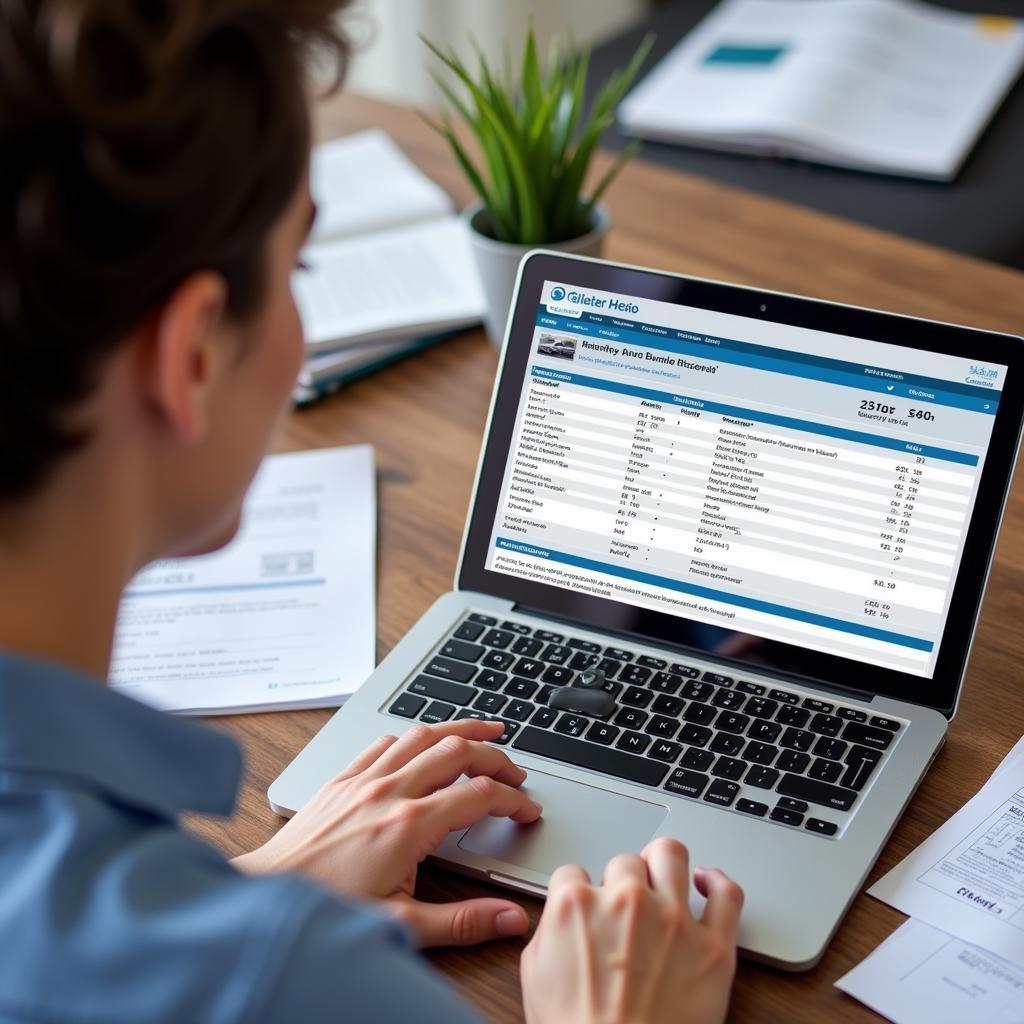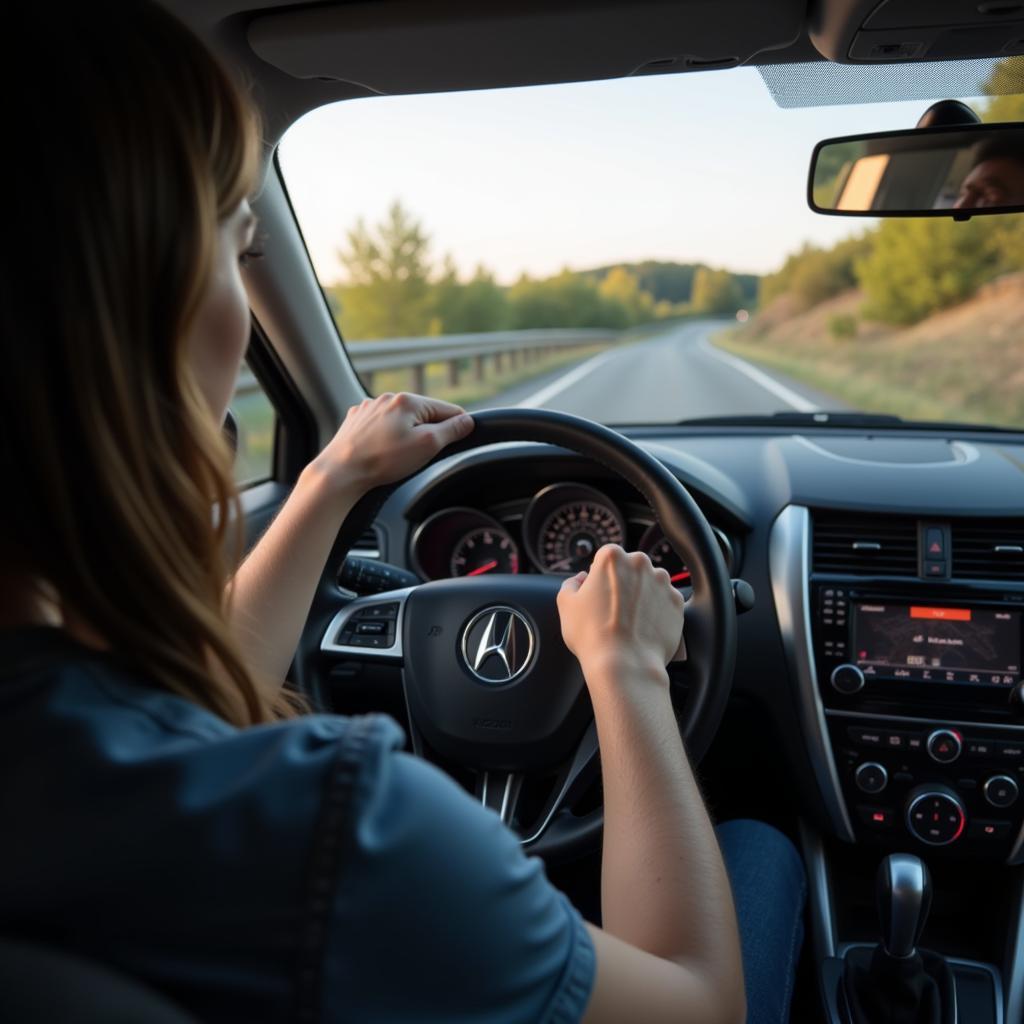Checking for problems before buying a used car is crucial to avoid costly repairs and ensure you’re getting a reliable vehicle. A thorough inspection can save you from headaches down the road.
Essential Checks Before You Buy a Used Car
Before handing over your hard-earned cash, take the time to thoroughly check for problems before buying a used car. This includes examining the vehicle’s history, conducting a visual inspection, and taking it for a test drive.
Vehicle History Report: Unveiling the Past
A vehicle history report is your first line of defense. It can reveal hidden problems like accidents, title issues, and flood damage. Services like Carfax and AutoCheck can provide this valuable information.
- Accident History: Look for any reported accidents, especially major ones, that could indicate structural damage or potential mechanical issues.
- Title Issues: A salvaged or rebuilt title can signal serious problems and significantly impact the car’s value. Be wary of these.
- Mileage Verification: Ensure the reported mileage matches the vehicle’s condition and service records. Discrepancies can indicate odometer tampering.
 Checking the vehicle history report before buying a used car
Checking the vehicle history report before buying a used car
Visual Inspection: A Keen Eye for Detail
A thorough visual inspection can reveal a lot about a used car’s condition. Check for problems before buying a used car by paying attention to these key areas:
- Exterior: Examine the body panels for dents, scratches, and rust. Mismatched paint can indicate prior bodywork. Check the condition of the tires, lights, and glass.
- Interior: Inspect the seats, carpets, and dashboard for wear and tear. Test all the controls, including the air conditioning, radio, and power windows.
- Engine Compartment: Look for leaks, corrosion, and worn belts or hoses. Check the fluids, such as oil and coolant, for proper levels and condition.
Test Drive: Feeling the Road
A test drive is essential to check for problems before buying a used car. Pay attention to how the car handles, accelerates, and brakes. Listen for unusual noises and vibrations.
- Steering: Does the steering wheel feel tight and responsive? Any pulling or wandering can indicate alignment issues.
- Brakes: Do the brakes feel firm and responsive? Any squeaking, grinding, or pulsation can indicate brake problems.
- Transmission: Does the transmission shift smoothly? Any hesitation, slipping, or jerking can indicate transmission issues.
“A proper test drive is more than just a quick spin around the block,” says automotive expert, Michael Stevens, ASE Certified Master Technician. “It’s about truly experiencing the car and identifying any potential issues before you commit to buying it.”
 Test driving a used car to identify potential problems
Test driving a used car to identify potential problems
Conclusion: Making an Informed Decision
Checking for problems before buying a used car is essential to protecting your investment and ensuring a safe and reliable vehicle. By following these tips, you can make an informed decision and avoid costly surprises down the road. Remember, a little due diligence can go a long way. Need further assistance? Contact AutoTipPro at +1 (641) 206-8880 or visit our office at 500 N St Mary’s St, San Antonio, TX 78205, United States. We’re here to help!
FAQ
- What is the most important thing to check when buying a used car? The vehicle history report is arguably the most important, as it can reveal hidden problems that aren’t readily apparent.
- Should I take a used car to a mechanic for an inspection? Absolutely! A pre-purchase inspection by a trusted mechanic is highly recommended.
- How can I tell if the odometer has been rolled back? Compare the reported mileage with the vehicle’s condition, service records, and wear and tear. Discrepancies can be a red flag.
- What are some common problems to look for in a used car? Rust, mechanical issues, and electrical problems are common issues in used cars.
- How can I negotiate a better price on a used car? Point out any flaws you’ve found during your inspection and use them as leverage to negotiate a lower price. “Never be afraid to walk away from a bad deal,” advises Maria Sanchez, Certified Automotive Appraiser. “There are plenty of used cars out there.”
- Is it better to buy a used car from a dealer or a private seller? Both have their pros and cons. Dealers often offer warranties, while private sellers may offer lower prices.
- What should I do if I find problems after buying a used car? If the car came with a warranty, contact the dealer immediately. If not, you may need to consult with a mechanic and explore your legal options.




Leave a Reply